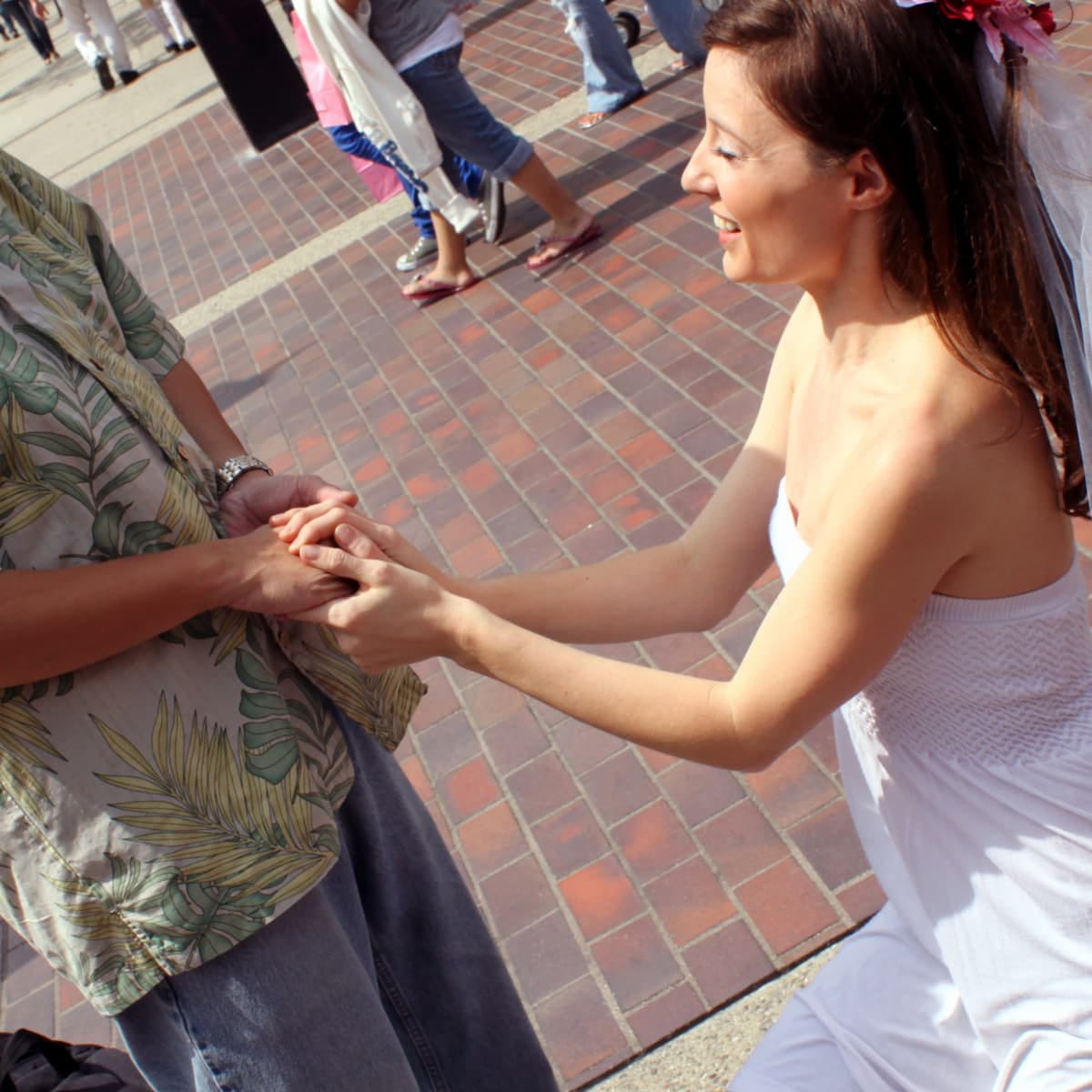If a Girl Proposes to a Boy, How Does Society Take It?
If a Girl Proposes to a Boy, How Does Society Take It?

If a Girl Proposes to a Boy, How Does Society Take It?
Introduction
If a Girl Proposes to a Boy, How Does Society Take It? Love is one of the most personal and profound human emotions. Yet, even something as natural as love is often governed by societal expectations, norms, and traditions. One of the long-standing traditions that persists globally is that men should be the ones to propose. The moment a woman expresses her feelings first — especially through a marriage proposal — it tends to raise eyebrows.
But why is that? Why does something as personal as expressing love come with gender-based expectations?
In this blog, we’ll explore how society reacts when a girl proposes to a boy — looking through cultural, social, and emotional lenses. From historical context to media portrayal, societal stigma to real-life experiences, we’ll dive deep into the topic and try to answer: Is society ready for women to take the lead in love?
- A Historical View: Love and Gender Roles
Historically, women have been viewed as passive participants in romantic relationships. Across many cultures, they were expected to wait — for the man to express interest, to propose, and to lead. Proposing marriage was traditionally seen as a man’s role, while the woman’s role was to accept or reject.
This tradition didn’t arise by accident. In patriarchal societies, men were seen as the providers and decision-makers. Women, often dependent on male protection and approval, were rarely encouraged to voice personal desires, especially in romantic matters.
Proposing was considered an act of courage and assertion — traits long associated with masculinity. As such, a woman taking that step was (and in some places still is) viewed as “too bold” or “unfeminine.”
- The Changing Face of Modern Love
Fast forward to today, and we’re witnessing a slow but definite shift. Women are no longer waiting to be chosen — they are choosing. They are CEOs, astronauts, soldiers, and leaders — so why can’t they also be the ones to propose?
Yet, despite progress in gender equality, a woman proposing to a man is still not entirely normalized. It may be admired by some, but judged by others. Acceptance is conditional — often based on geography, family values, cultural background, and media influence.
So, how does society actually react? Let’s break it down.
- Global Perspectives on Women Proposing
If a Girl Proposes to a Boy, How Does Society Take It?
3.1 Western Societies
In countries like the U.S., UK, and parts of Europe, a woman proposing to a man isn’t unheard of — but it’s still uncommon. A 2018 study by The Knot revealed that only 16% of women would consider proposing.
While many men say they’d be flattered, others feel their “manhood” is challenged. Gender roles may be fading, but the pressure to fulfill “traditionally male responsibilities” — like proposing — still lingers.
Some cultures even have specific traditions around this reversal. In Ireland, for instance, it’s believed that women are allowed to propose on Leap Day (February 29) — a tradition that’s hundreds of years old.
3.2 South Asian Context (India, Bangladesh, Pakistan)
In South Asian societies, the idea of a woman proposing is far more controversial. Even in educated, urban communities, it’s often seen as a rebellion against social norms.
Women proposing are sometimes labeled as “fast,” “desperate,” or “too forward.” Families may disapprove, gossip may spread, and the woman’s “character” might be questioned — all because she dared to express love first.
Still, the tide is changing. More women in South Asia are choosing to live life on their own terms, love included.
- Media and Pop Culture Influence
Popular culture has a huge role in shaping society’s view of romance. For decades, films, TV shows, books, and songs have reinforced the idea that the man makes the first move.
Think about it: when was the last time you saw a major movie where the woman got down on one knee?
That said, the narrative is slowly shifting. Some modern movies, web series, and social media content feature women proposing — and receiving support and admiration. Viral TikToks and Instagram reels often show heartwarming proposal videos from women, challenging traditional views.
- Challenges Faced by Women Who Propose
If a Girl Proposes to a Boy, How Does Society Take It?
5.1 Social Judgment
Even today, many women fear being judged if they propose. They’re often told:
- “Let the man take the lead.”
- “What if he feels emasculated?”
- “People will talk.”
And they’re right — people do talk. In conservative communities, proposing can lead to backlash not just from peers, but even from family.
5.2 Male Ego and Traditional Masculinity
Some men, due to ingrained beliefs, feel uncomfortable being proposed to. It can hurt their ego — not because they don’t appreciate the love, but because society has made them believe that proposing is their job. Being proposed to can feel like a loss of control or a dent in their “masculinity.”
This isn’t the woman’s fault — it’s a societal flaw that burdens men with unrealistic expectations, just as it does women.
- Real-Life Stories That Break the Norm
If a Girl Proposes to a Boy, How Does Society Take It?
6.1 Snigdha’s Story (India)
Snigdha, a 27-year-old software developer, proposed to her colleague Rajiv during an office party. She didn’t kneel or make a spectacle — she simply told him how she felt, and asked if he felt the same. He did. Today, they’re happily married, and Rajiv says he felt “lucky” that she took the first step.
6.2 Celebrity Examples
If a Girl Proposes to a Boy, How Does Society Take It?
Even celebrities are flipping the script:
- Pink, the pop singer, proposed to her now-husband, Carey Hart, during a motocross race, holding up a sign saying “Will You Marry Me?”
- Britney Spears also reportedly proposed to Kevin Federline.
These moments inspire countless women to take control of their love stories.
- The Power of Choice: Why It Matters
At its core, proposing is an act of love and vulnerability. Gender should never be a barrier to expressing your feelings.
When a woman proposes, she’s saying:
- I know what I want.
- I respect myself and you enough to be honest.
- I’m not waiting for permission to love.
This isn’t about reversing roles — it’s about removing the roles altogether.
When we stop defining love by gender, we create space for authenticity, equality, and emotional freedom.
- What Does the Future Hold?
As gender norms continue to evolve, so too will society’s views on relationships. The younger generation is increasingly rejecting outdated traditions. In an age of dating apps, remote work, and global culture — relationship dynamics are becoming more fluid than ever.
Soon, who proposes may matter less than the why behind the proposal.
Schools, media, and families can all play a role in reshaping the narrative. By teaching emotional intelligence, consent, and respect — we can raise a generation where both girls and boys feel empowered to express love on their own terms.

Conclusion: When Love Leads, Society Follows
So, how does society react when a girl proposes to a boy?
- Sometimes with shock.
- Sometimes with admiration.
- Often with judgment.
- But increasingly — with acceptance.
Love is not about scripts. It’s about connection, courage, and honesty. If a girl proposes to a boy, she’s not overstepping — she’s simply stepping into her truth.
And that, perhaps, is the most romantic thing of all.
Final Thought
If you’re a woman thinking about proposing — don’t let fear stop you. Society only changes when people dare to be different. And if love is real, your courage will not be in vain.
❤️
If a Girl Proposes to a Boy, How Does Society Take It? (Part 2)
Breaking Down Psychological, Social, and Cultural Layers of Love-Initiation by Women
- The Psychology Behind Proposing
9.1 Emotional Labor and Gender
In most cultures, women are seen as the emotional caretakers in relationships. They’re expected to nurture, support, and express — but interestingly, proposing is where the line gets drawn. Despite being emotional beings (as stereotypes go), they’re discouraged from initiating romantic commitments.
Why? Because proposing isn’t just emotional — it involves risk, vulnerability, and leadership. These traits are traditionally linked to masculinity, which makes it harder for women to step into that role without facing internalized doubt.
9.2 Fear of Rejection and Stigma
Every proposal, regardless of gender, carries the fear of rejection. But for women, the stakes often feel higher. If a man is rejected, he may receive sympathy or a “nice try” from friends. If a woman is rejected, it might result in whispers like:
- “She was too desperate.”
- “She probably scared him off.”
- “She made it too easy.”
This societal shaming of emotional boldness discourages self-expression and contributes to long-term insecurity in many women.
- Family Expectations and Cultural Backlash
In traditional families, particularly in South Asia, Middle East, Africa, and some East Asian cultures, the idea of a woman expressing desire first can trigger discomfort — or even outrage.
10.1 “What Will People Say?” Syndrome
A girl proposing may lead to questions like:
- “Didn’t her parents raise her properly?”
- “Why is she rushing?”
- “Is she trying to trap the boy?”
These reactions stem from a culture that values modesty and patience in women. Assertiveness is often mistaken for aggressiveness, especially in matters of love.
10.2 Family Honor and Gender Roles
In patriarchal families, decisions around marriage often involve elders. If a girl skips this “chain of command,” she may be accused of tarnishing family honor — a dangerous label in conservative settings. In extreme cases, it can even result in emotional abuse or forced separation.
- Case Studies: Around the World
11.1 Japan
Japan is a society where indirect communication is the norm. Public proposals, especially by women, are very rare. Even in romantic relationships, women are more likely to “hint” rather than explicitly propose. However, with the younger generation and more exposure to Western ideals, small changes are occurring — albeit slowly.
11.2 Nigeria
In parts of Nigeria, tribal customs still influence marriage norms. Men are expected to go through formal “introduction ceremonies” before proposing. A woman proposing is often seen as disrespectful, although urban youth are increasingly rejecting these limitations in favor of love marriages.
11.3 Sweden
Sweden, known for its progressive gender norms, is one of the countries where female proposals are more accepted. Swedish women are encouraged to express their feelings directly, and proposing isn’t heavily stigmatized. However, the act still isn’t mainstream and is often framed as “unusual but sweet.”
- Social Media’s Double-Edged Sword
12.1 Amplification of Voices
Social media has given voice to thousands of women who want to rewrite the script of love. Videos of girls proposing — in parks, shopping malls, concerts — often go viral. These become moments of empowerment, showing that love has no gendered direction.
12.2 Troll Culture and Toxic Commentary
Unfortunately, social media is also where judgment multiplies. A woman proposing might get flooded with:
- Comments about her appearance (“No wonder she had to propose.”)
- Doubts about the man’s masculinity (“He’s not a real man.”)
- Misinformed morality debates (“Girls these days have no shame!”)
This blend of admiration and mockery reflects society’s confused state of transition — stuck between old values and a modern world.
- What Do Men Really Think About Being Proposed To?
The assumption is that men love the idea. But reality is more nuanced.
13.1 A Mix of Pride and Pressure
Some men feel honored when a woman proposes. It signals confidence and mutual desire. But others feel pressure — they fear being judged as “weak” for not taking the lead.
In interviews and polls:
- Some said they felt “robbed” of the chance to create a memorable moment.
- Others said they were “grateful” for not having to go through the stress.
- A few confessed feeling “emasculated” — even if they accepted the proposal happily.
This shows that while women face stigma, men too are victims of gender expectations.
- Popular Myths About Women Proposing – And The Truth
| Myth | Reality |
| Only desperate women propose | Confident women propose — because they know what they want. |
| Men don’t like being proposed to | Many do — especially if the proposal is heartfelt and genuine. |
| A relationship won’t last if the woman proposes | Relationship longevity depends on compatibility, not proposal roles. |
| It’s unnatural | Love isn’t about nature vs. nurture — it’s about connection. |
| Families won’t accept it | With respectful communication, many families can evolve. |
- How to Propose As a Woman: Tips for Confidence
If you’re considering proposing, here are practical tips to ensure the experience is positive:
15.1 Know Your Partner’s Views
Before you go all out, make sure your partner is emotionally ready and open to non-traditional roles. Some men feel uncomfortable being proposed to — not out of pride, but due to societal conditioning.
15.2 Choose a Personal Setting
It doesn’t have to be a viral moment. Whether it’s during a quiet dinner or a shared hobby, focus on authenticity, not theatrics.
15.3 Speak From the Heart
Forget gender roles. Just say what you feel. That’s what matters most.
15.4 Be Ready for Any Response
Every proposal comes with risk. Be prepared for a “no” or a “not yet” — and don’t let that damage your self-worth.
- Empowering Examples from Pop Culture
Movies and series have begun to include role-reversals that normalize women proposing. Here are a few:
- “Leap Year” (2010) – A woman travels to Ireland to propose on February 29.
- “The Proposal” (2009) – While not a female proposal in the traditional sense, it flips the power dynamic.
- Netflix’s “Love Is Blind” – Women often take emotional initiative in proposals.
As representation increases, so does social acceptance.
- The LGBTQ+ Lens: Lessons for Heteronormative Relationships
In LGBTQ+ relationships, proposing often doesn’t follow any gender rule. Both partners may feel equally free to propose — whenever it feels right. This teaches a valuable lesson: Proposing isn’t about roles — it’s about readiness and love.
Heterosexual couples can learn from this equality-focused model. Love doesn’t need a script. It needs intention.
- Voices from Real Women: First-Hand Quotes
“I was terrified he’d laugh or say I was too much. Instead, he cried and said he was relieved I asked first.”
– Asha, 29, India
“I proposed on a hike. No ring, no fuss. Just us. He said yes. We’ve been married 3 years now.”
– Monica, 32, California
“My mom was upset at first. But when she saw how happy we were, she gave us her blessing.”
– Fariha, 27, Bangladesh
- The Future: Toward Proposal Equality
As society continues to evolve, one day we may reach a point where who proposes becomes irrelevant. It will be about love, not labels.
In this world:
- Girls won’t fear judgment.
- Boys won’t feel emasculated.
- Families will value emotions over egos.
But for that future to exist, today’s generation must take the first steps — with courage, compassion, and open minds.
- Final Words: Love Is a Verb, Not a Tradition
Proposing isn’t a privilege — it’s a choice. Whether you’re a man or a woman, if you love someone, you have every right to express it first. The idea that only one gender should initiate love is not just outdated — it’s limiting.
Let love be bold. Let it be free. And let it start — with you.

- How Proposal Roles Shape Long-Term Relationship Dynamics
While the proposal is just one moment in a couple’s journey, it can set the tone for how a relationship unfolds over time. Who takes initiative, who leads in decisions, and how emotions are communicated — all these can be subtly influenced by the very first defining act: the proposal.
21.1 Starting with Equality
When a woman proposes to a man, it can set a precedent for an egalitarian relationship — one where both partners feel free to express emotions, take initiative, and lead in various areas of their shared life.
This doesn’t mean that the woman always leads, or the man always follows — rather, it creates a dynamic of balance. It sends a clear message: “In this relationship, we both get to choose, act, and express.”
Such relationships often foster:
- Better communication: Since rigid roles are rejected early on, emotional openness thrives.
- Shared responsibility: There’s less chance of emotional labor falling on one person.
- Mutual respect: Breaking norms together builds trust and admiration.
21.2 Traditional Roles and Hidden Imbalance
In contrast, when proposals strictly follow traditional roles — and those roles continue unchallenged — it can lead to patterns where men are expected to lead in most areas, and women are expected to follow.
This can impact:
- Career decisions (e.g., whose job is prioritized)
- Parenting roles (e.g., who stays home or sacrifices)
- Emotional support (e.g., who initiates difficult conversations)
Breaking tradition at the proposal stage might be uncomfortable, but it can pave the way for a more balanced emotional and intellectual partnership.
- What If the Proposal Doesn’t Go As Planned?
One common fear, especially among women considering proposing, is: “What if he says no?”
It’s a valid concern — but one that both genders face equally. The truth is, rejection is never easy, but it doesn’t have to be humiliating or relationship-ending.
22.1 A “No” Doesn’t Always Mean the End
Sometimes a partner may say “not yet” rather than an outright no. Timing, career goals, or personal growth may be influencing their decision. If love is present, many couples can grow through the conversation and reach a mutual decision down the line.
22.2 Respecting Both Parties
What matters most in any proposal — by a man or a woman — is respecting the response. Pressuring someone, mocking their hesitation, or turning a romantic moment into social leverage can backfire.
Courage is beautiful. So is grace — whether you receive a “yes,” “no,” or “maybe later.”
- The Power of Rewriting the Script
Every time a woman proposes, she quietly challenges generations of conditioning. She tells the world:
- Love doesn’t follow gender rules.
- Emotions aren’t one-sided.
- Vulnerability is strength, not weakness.
Each such act rewrites the relationship narrative for future couples. One girl’s proposal today can inspire a thousand others tomorrow.
In the end, love isn’t about tradition or rebellion — it’s about truth. And there’s nothing more truthful than telling someone, “I choose you.”









